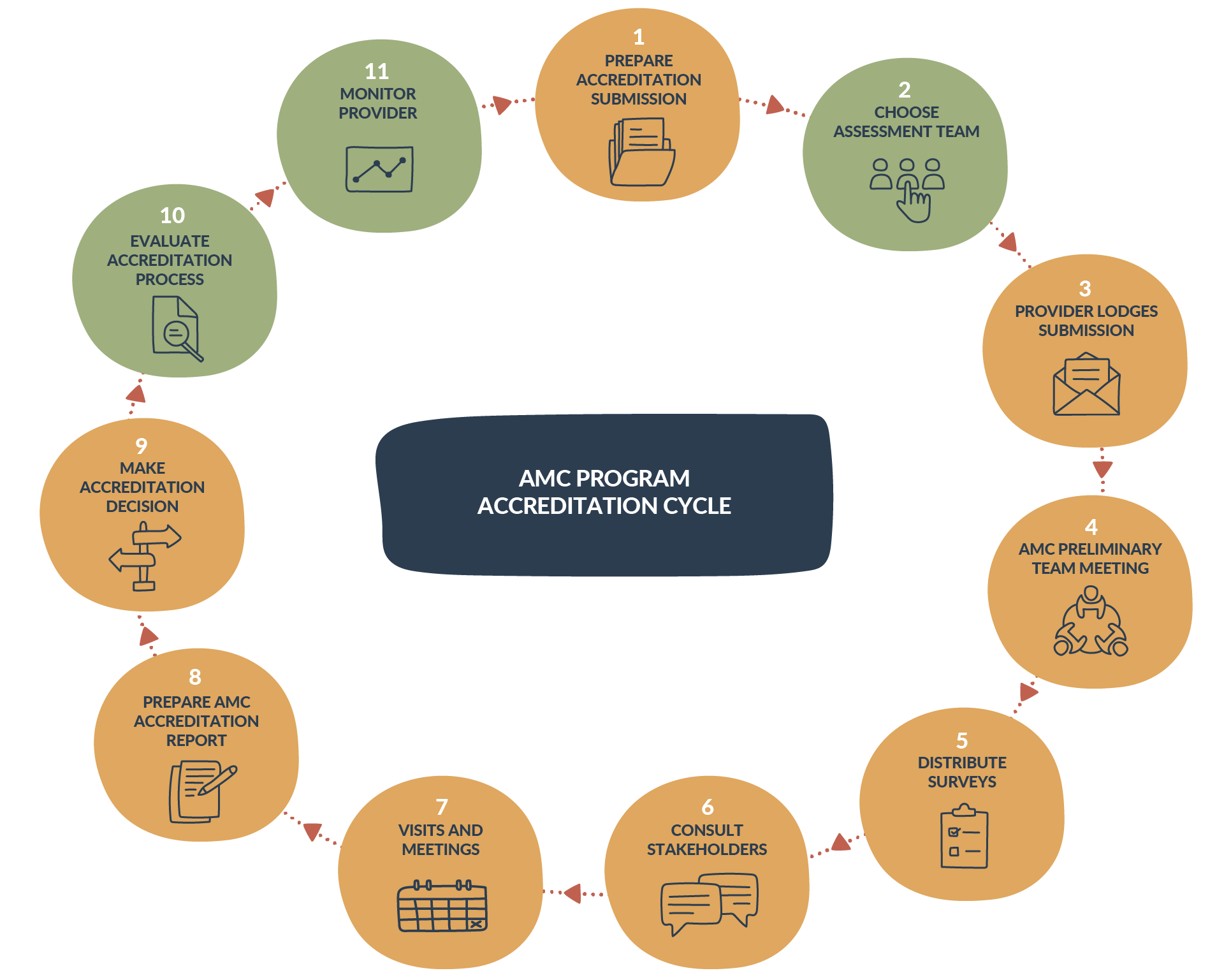Accreditation
The AMC develops standards for medical education and training in all phases of medical education. The standards define the knowledge, skills and professional attributes expected at the end of basic medical training and specialist medical training, and good practice in the delivery of medical education and training. Through its accreditation processes, the AMC assesses and monitors education providers and their medical programs against these standards. Medical programs that meet the standards are granted accreditation.
‘Medical schools take accreditation by the AMC very seriously. It generates a cycle of reflection and work that, over time, improves every medical program.’ Prof Geoff McColl
AMC processes entail both accreditation (validating that standards are met) and peer review to promote high standards of medical education, stimulate self-analysis and assist the organisation under review to achieve its objectives. Accreditation is conducted in a collegiate manner that includes consultation, advice and feedback to the organisation under review.
AMC accreditation processes apply to:
- primary medical education programs provided by university medical schools
- the internship, the first year after medical school, which is a year of supervised work based training
- specialist medical training and continuing professional development programs provided by national specialist medical colleges
- programs for endorsement of registration of medical practitioners for acupuncture
- workplace-based assessment programs for international medical graduates
- pre-employment structured clinical interviews.
The Australian Medical Council’s standards, processes and reports are also relied upon by the Medical Council of New Zealand to make decisions about programs that are acceptable qualifications for registration in New Zealand.
Review Process

Diagram 1: Accreditation Cycle
The AMC establishes accreditation assessment teams to assess programs and their providers. Using a peer review process, these teams assess medical programs against the approved accreditation standards, and prepare a report on their findings.
Assessment team findings are considered by the relevant AMC Standing Committee (Medical School Accreditation Committee, Specialist Medical Education Accreditation Committee and Prevocational Standards Accreditation Committee) and the recommendations of these Committees by the AMC Directors.
The AMC may grant accreditation if it is reasonably satisfied that a program of study and its provider
- MEET an approved accreditation standard or
- SUBSTANTIALLY MEET an approved accreditation standard and the imposition of conditions on the approval will ensure the program meets the standard within a reasonable time.
In 2018-19, the AMC made the accreditation decisions listed below. Each decision was reported to the Medical Board of Australia. The Medical Board makes an independent decision on whether to approve of AMC-accredited programs for the purposes of registration and lists approved programs on the MBA website: http://www.medicalboard.gov.au
AMC accreditation reports and provider monitoring reports for medical schools and binational and Australian specialist medical colleges are also used by the Medical Council New Zealand to make decisions about acceptable qualifications for the purposes of registration in New Zealand. Approved programs are listed on the website: https://www.mcnz.org.nz/
Full reports are available on the AMC’s website at https://www.amc.org.au/accreditation-and-recognition/accreditation-reports/.
Page Created 28 Oct 2019 | Page Updated 28 Nov 2019